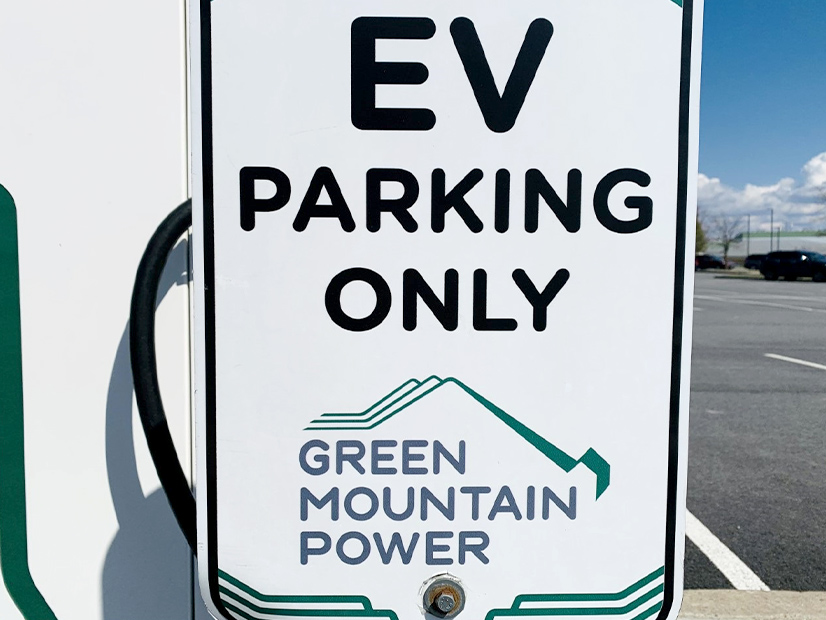
The Vermont Agency of Transportation (VTrans) is estimating that the state will lose $560,000 in gas tax revenue this year from the adoption of plug-in hybrid and all-electric vehicles.
Given the state’s plans to ramp up EV adoption, gas tax revenue losses from light-duty cars could reach $5.3 million in 2025 and $80 million in 2050, Joe Segale, VTrans’ policy, planning and research bureau director, told legislators Wednesday.
“We need to make up for this lost revenue, and we need to do it in a way that doesn’t do any harm to the adoption of EVs,” Segale said during testimony before the House Transportation Committee.
Segale presented findings to the committee from a new study on the effect of EV adoption on the gas tax and possible solutions to offset revenue losses. The agency is recommending that Vermont establish an EV mileage-based user fee by 2024 that gathers odometer data during annual vehicle safety inspections.
The tax loss from Vermont’s 5,730 registered plug-in hybrid and all-electric vehicles will only account for 0.67% of the state’s total gas tax revenue this year, which Segale said is “manageable.” About one-third of those vehicles are all-electric.
Estimates from the recently released Vermont Climate Action Plan put total registered EVs at 47,500 by 2025 and 593,000 by 2050.
Vermont uses its gas tax revenue to match federal funding, so Segale said it’s critical to put sustainable alternative mechanisms in place as soon as possible. About 25% of the money raised through the gas tax comes from out-of-state drivers, he said.
The study examined the possibility of establishing a per-kilowatt-hour fee for out-of-state EV drivers at public charging stations. Data from three Vermont utilities’ charging stations showed that out-of-state drivers purchase 15 to 20% of the electricity.
Based on purchase data and an estimated 3.4-cents/kWh equivalent to the gas tax, Segale said the state would only raise $5,000 from out-of-state drivers for the year.
“That’s just not worth it at this point, but we need to figure this out,” he said, adding that the best option now is to watch the national mileage-based user fee pilot established by the federal Infrastructure Investment and Jobs Act.
The options for capturing revenue from EVs include collecting an annual flat fee or charging a fee based on miles driven, according to the study. For plug-in hybrid and all-electric vehicles, the study recommended annual flat fees of $55 and $139, respectively, based on historical average miles driven.
There are winners and losers under a flat-fee system, as nobody drives the average, Segale said. The agency, therefore, is leaning toward a mileage-based fee.
Until onboard telematics can automatically report miles driven, the state will need to establish a system for reading individual odometers.
That could happen through wireless devices installed by drivers, but Segale said the most viable option is to collect the data during annual safety inspections. Implementing that data collection process would cost the state between $1 million and $2 million and 3.5% of the annual revenue collected for ongoing operations, according to the study.
Thirteen states have active mileage-based user fee pilots, while another 13 are studying the option. Utah and Oregon have instituted mileage-based user fee programs for EVs that Segale said allow owners to pay a flat fee or pay by miles driven, with a cap at the flat rate. Both states, he added, may expand the program to all vehicles.
Virginia has also passed a law to allow mileage-based fees, but the state is still designing the system.
“There’s some uncertainty now about how much that will be pushed because there has been a change in leadership in Virginia,” Segale said.
VTrans will perform a system assessment and design study for a mileage-based program this year and seek legislative approval for the program next year. Program implementation would not begin until at least 2024, Segale said.
“The Climate Action Plan recommended waiting to establish registration fees for EVs until they reach 15% market share, and the Department of Environmental Conservation [estimated] that might happen by 2026,” Segale said.


